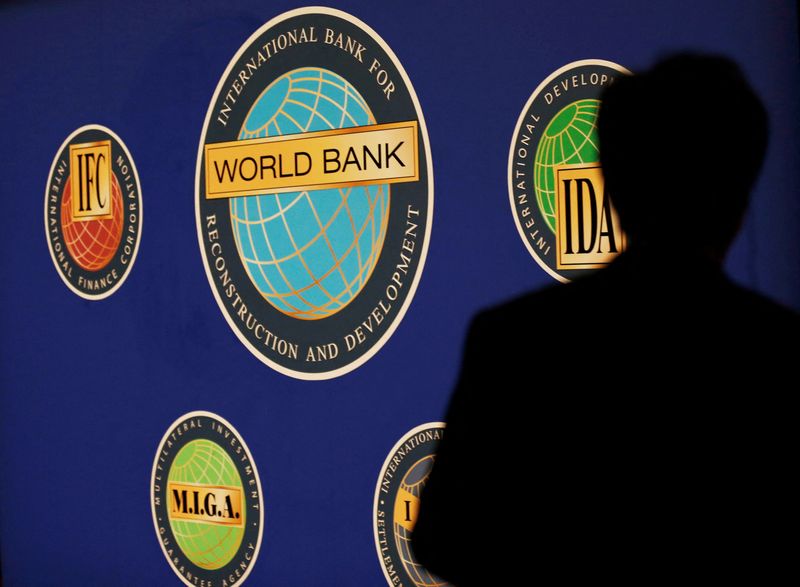By Emma Rumney, Simon Jessop and Sofia Christensen
(Reuters) - Mamadou Lamarana was hoping the World Bank's financial involvement in a western Guinean bauxite mine expansion would lead to compensation for the loss of land and pollution he says his community suffered in the run up to their resettlement in 2020.
The 38-year-old electrician and representatives from 12 other villages complained three years ago to World Bank affiliate International Finance Corporation (IFC) that the project developer, state-backed Compagnies des Bauxites de Guinee (CBG), had not made up for damage it had caused since 1973.
The villagers say they want their mined land rehabilitated and their communities compensated. They hoped the IFC, which contributed $200 million to finance the mine's expansion, would come through for them.
But the IFC and other major development banks, such as the Asian Development Bank and the African Development Bank, have long resisted compensating communities impacted by the projects they finance, even as they acknowledge developers often fall short.
A rise in complaints about projects such as those in Guinea have prompted activists to push development banks to contribute to compensation.
One activist group, the non-profit Accountability Counsel, points to a 231% rise in complaints between 2009 and 2019 as evidence development banks are backing projects without regard for communities. Just 16.4% of 1,614 complaints filed since 1994 have reached a formal conclusion, it added.
An IFC spokesperson said the bank was working closely with CBG to address villagers' concerns and that it was committed to the mediation process.
Instead of compensation, the IFC points to its independent complaints process which facilitates talks between project developers and communities, as well as recommends changes to the bank's rulebook for future projects.
In the case of the mine in Guinea, the mediation talks were pre-empted. CBG, which is partly owned by Rio Tinto (NYSE:RIO) Plc and Alcoa (NYSE:AA) Corp, relocated Lamarana's village on the eve of the scheduled negotiations in 2020.
CBG had promised 56 hectares of farmland to Lamarana's community but delivered only 22 hectares, Lamarana said. The new land had been previously mined and was shorn of the topsoil needed to grow food for a living, he added.
"They told us our new village would be like a mirror of Africa, because it would be so beautiful. But they did not do that," Lamarana said in an interview.
A CBG spokesperson said the company was committed to restoring all of the farmland and was sponsoring livelihood restoration programmes including on poultry production and sustainable agriculture.
The spokesperson also said CBG had paid some cash or in-kind compensation for affected land, crops and trees, but declined to give a figure, citing confidentiality requirements.
Lamarana said he had received several small payments as the mine gradually encroached on his land, but argues he and the community are entitled to more. He declined to say how much he received in compensation, citing the ongoing negotiations.
The IFC spokesperson told Reuters it was considering a new framework that could include financial support or in-kind actions by the IFC for the affected communities "in exceptional circumstances," without specifying what those circumstances would be.
STRICTER REQUIREMENTS
David Pred, president of Inclusive Development International (IDI), a non-profit helping those harmed by development projects, said the IFC should stagger its loan disbursements and tie them to borrowers meeting its high environmental and social standards. It should also ask for money for compensation to be set aside upfront, he added.
"If the IFC did just those two things, the communities in (Guinea) would be in a very different place today in terms of being able to secure redress and it would have likely prevented a lot of the harms that we've seen since the expansion project got underway," Pred said.
The IFC does stagger disbursements for some compensation but it is not clear whether they did that for the CBG project.
The IFC spokesperson said the bank was considering requiring project developers to take out insurance as one option to cover the cost of potential compensation. However, the spokesperson added if project developers are saddled with too many costs they may be discouraged from working with the IFC in the first place.
"If we don't end up with the right balance in this framework, there is a concern we may lose business and have less of an impact," the spokesperson said.
